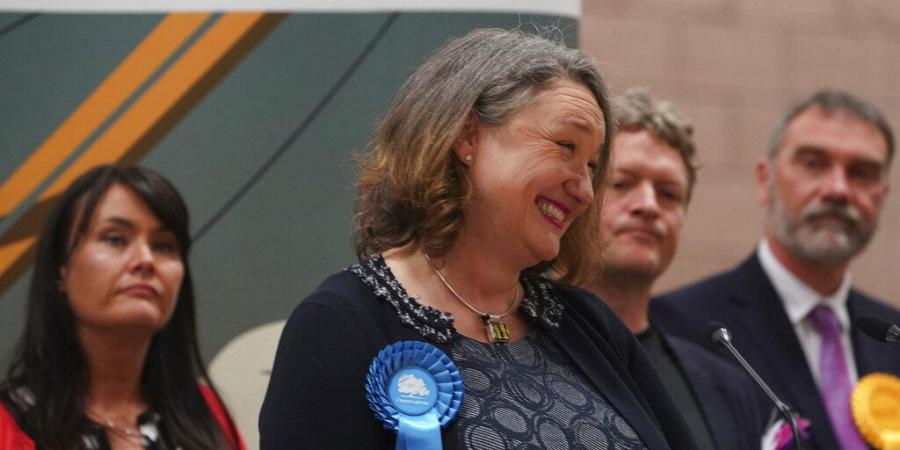 LONDON: Britain’s governing Conservative Party has won a special election in the north of England town of Hartlepool, dealing a big blow to the main opposition Labour Party, which had held the parliamentary seat since its creation in 1974.
LONDON: Britain’s governing Conservative Party has won a special election in the north of England town of Hartlepool, dealing a big blow to the main opposition Labour Party, which had held the parliamentary seat since its creation in 1974.
The victory for Prime Minister Boris Johnson’s party, announced Friday morning, provides further evidence that the Conservatives are making ground in parts of the country that have been Labour strongholds for decades, managing to present itself as the party of change even though it’s been in power for 11 years.
Over a coming couple of days, results from an array of elections in Britain will be announced. On what was dubbed Super Thursday, around 50 million voters were eligible to take part in scores of elections, some of which had been postponed a year because of the pandemic that has left the U.K. with Europe’s largest coronavirus death toll.
The results of Thursday’s election in Hartlepool showed the Conservative candidate Jill Mortimer winning with 15,529 votes, or nearly 52% of the vote. The Labour candidate, Paul Williams, only received 8,589 votes, or around 29% of the vote.
“It is a truly historic result and a momentous day,” Mortimer said in her victory speech. “Labour have taken people in Hartlepool for granted for too long.”
In the 2019 general election, the Conservative Party made big inroads into Labour’s “red wall” in northern England on a combination of factors, including its pro-Brexit stance. The recent success of Britain’s coronavirus vaccine rollout also appears to have given the Conservatives a shot in the arm.
Whatever lay behind the result, the loss of Hartlepool, a post-industrial town that is one of the poorest in England, represents a stunning defeat for the Labour Party and its new leader Keir Starmer.
Hopes were high that Starmer would help Labour reconnect with its lost voters in the north of England when he took the helm a little more than a year ago after succeeding the more left-wing Jeremy Corbyn, who led the party in 2019 to its worst election performance since 1935.
Steve Reed, Labour’s communities spokesman, said it was “absolutely shattering” to see a Conservative candidate win in a place like Hartlepool.
“I think what this shows is that although we have started to change since the cataclysm of the last general election, that change has clearly not gone far enough in order to win back the trust of the voters,” he told the BBC.
Over the coming couple of days, Labour should have some results to cheer, with Sadiq Khan and Andy Burnham expected to easily win second terms as the mayors of London and Manchester.
Other results to come include the elections for the devolved governments in Scotland and Wales. In addition, thousands of council members, police commissioners and other local authorities are up for grabs in England. No elections took place in Northern Ireland.
The result that could have the biggest U.K-wide implications is the Scotland election, where the governing Scottish National Party is looking for a renewed mandate that could speed up the prospect of a second independence referendum.





